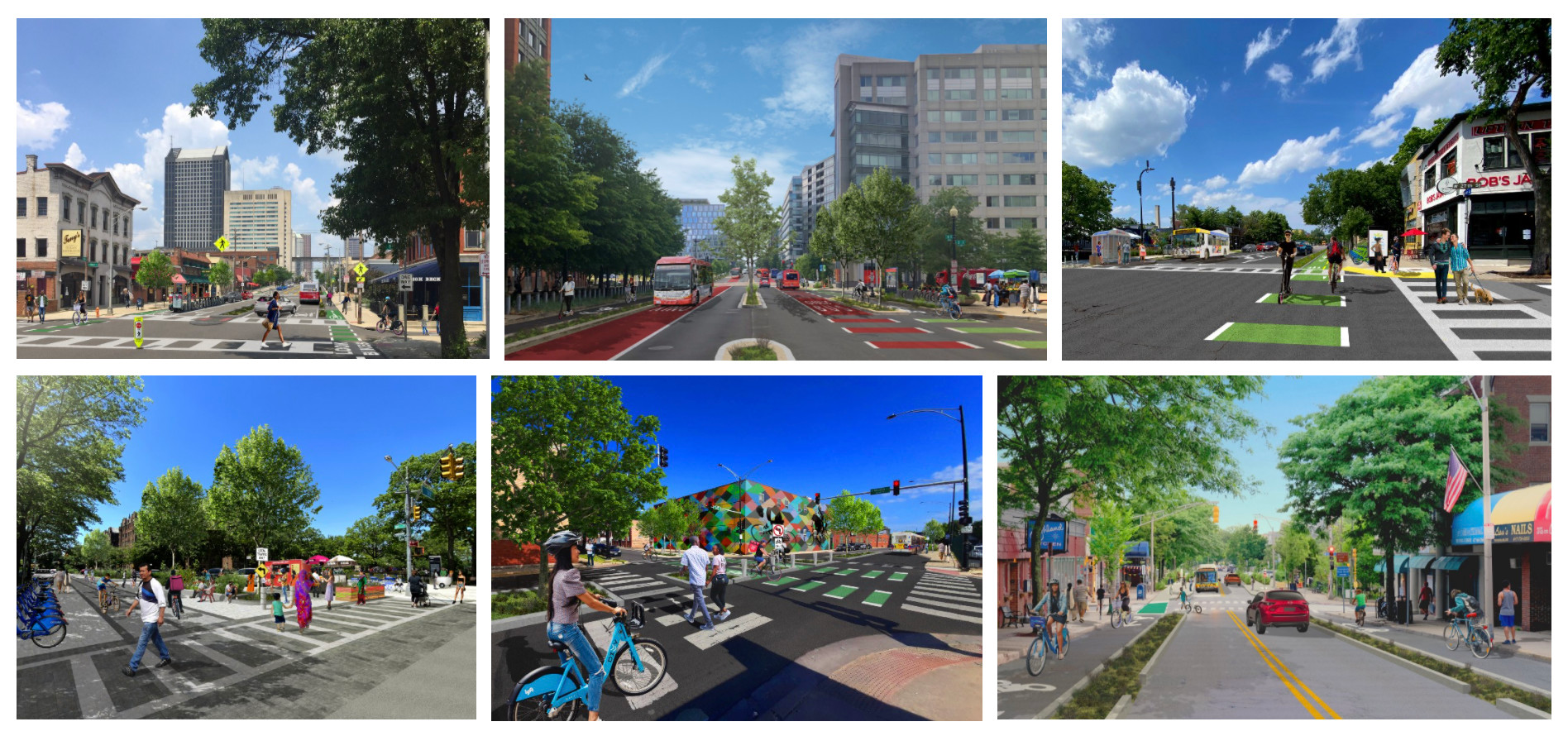2 comments

In a recent blog post, Lyft took a big stance against single occupancy vehicles by proposing a new plan on how street space can be redesigned from suiting cars to buses, bikes, and pedestrians. As Lyft’s core business is their ridehailing platform, proposing a shift that would essentially hurt their single occupancy ridehail vehicles is a bit surprising. However, due to the recent Covid-19 pandemic, Lyft’s ridehailing business (along with Uber) has been suffering greatly. With no current end in sight for the pandemic, it may actually benefit Lyft to push for city planning that is more geared towards bikes and scooters, as it may help their bikeshare platform.
Lyft’s “resilient streets” plan was released on Friday and through numerous published case studies they believe they have a plan that would redesign city streets to cater to multimodal commuting. Their plan outlines how three major cities, Chicago, NYC, and Washington DC, could adopt wider sidewalks with more bus and bike lanes. They even outline where and how to add more bikesharing stations, an aspect of the plan that will clearly benefit Lyft’s bikeshare program. Lyft states on their blog that a resilient street is “a street that prioritizes the efficient movement of people; it is a street that builds redundancy into transit networks by creating multiple, equally attractive options for getting around; and it is a street that is built to manage or mitigate environmental changes that are likely on the horizon.”
CNN Business talked to Caroline Samponaro, who leads Lyft’s micromobility policy and she told them that Lyft “was motivated by steps cities have taken during the pandemic to embrace car alternatives, as well as by concerns that cities will revert to their car-centric ways. Many cities have temporally closed streets or added bike lanes and outdoor dining spaces.”
If people have more safe, viable transportation options such as riding a bike or walking they may be less inclined to own and use a car. Not only will this help commuters to stay healthy it will also cut down on traffic and pollution, two growing concerns that many people have with Uber and Lyft operating in our cities.
In order to proceed, Lyft is working on encouraging congress to pass the FAST Act, a piece of legislation that guides transportation funding priorities nationally. In order to raise enough awareness and momentum, Lyft is teaming up with the League of American Bicyclists, PeopleForBikes, and Transportation for America to try and sway Congress to increase the amount of funding allocated for public transit, bike lanes and bikeshare. To read more on their initiative visit the Lyft blog.
Comments
They’re desperate to survive and be part of these initiatives. Continuing to play the role of a good guy
Variety in themes ensures endless entertainment for participants. Slots for real money feature everything from ancient civilizations to futuristic worlds, allowing gamblers to raffi777 explore different stories and visual landscapes while pursuing financial rewards and enjoyable, memorable casino moments.